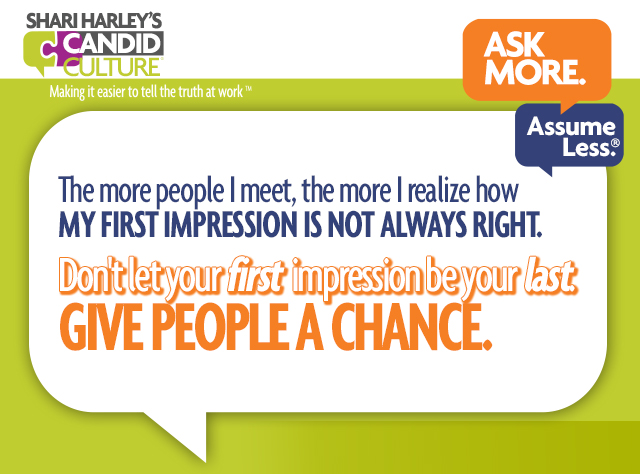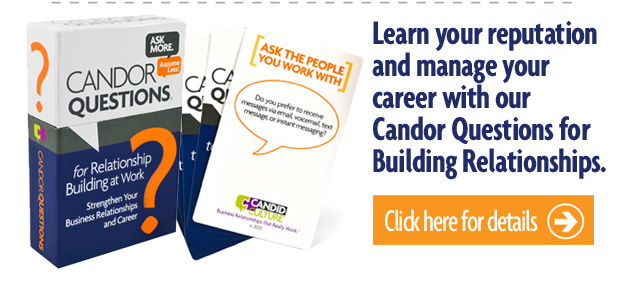Your First Impression May Not Be Correct
You’ve undoubtedly heard that it takes fewer than 30 seconds to form a first impression. The question is how frequently is your first impression wrong?
If the person sitting next to you on a plane doesn’t speak to you during the entire flight, you may initially think they are unfriendly, only to strike up a conversation as the plane is landing and find out that’s not the case. If a job candidate is outgoing, you may decide the person has good people skills, only to experience contrary behavior when they start the job. If someone is late to arrive for an initial meeting, you may decide they have an issue with time management, versus they were just running late that day.
Your first impression may be right, and it may be wrong, but it takes more than 30 seconds to be sure.

If you’ve participated in job interview training, you were probably trained to look for contrary evidence when forming an opinion about a candidate. Looking for contrary evidence is an attempt to disprove your first impression. If you quickly dismiss a candidate for lacking knowledge of your industry, you should ask interview questions to disprove your opinion before making a final decision.
Why not follow this practice in all settings? If you initially decide someone is trustworthy and reliable, spend more time with that person to be sure. If you quickly decide someone is unhelpful and uncommitted, give the person additional opportunities to behave differently before making a final judgment.
Snap judgments eliminate lots of great people and experiences from our lives.
Unfortunately, just as we prematurely exclude potential employees, friends, and life partners without having enough information, people do this to us as well, which is why it’s important to know the first impression you, your department, and your company make. If you don’t know the first impression you create, there’s nothing you can do to shift behaviors that may be costing you friends and customers.
When I was new to a job, early in my career, I asked my new coworkers to give me feedback if they saw me do anything that got in the way of my being successful at work. They agreed. But when they had negative feedback, they didn’t give it to me, they told my boss instead. That’s when I got the hard and painful lesson that people have a tendency to talk about us, not to us. It’s also when I began asking the people closest to me, who I know love me and care enough to tell me the truth, the first impression I create.
Opinions are formed quickly and they’re hard to break. Give people more than one chance and see how they show up. And know that many people will eliminate you, your department, and your company after just one interaction. So, find out the impression you create, giving you the power to do something about that impression.
Download some of the questions I ask to learn my reputation.
Tags: building relationships at work, candor questions, changing first impressions, changing reputations, first impressions, interview questions, job interview questions, Learn your reputation, manage your career







